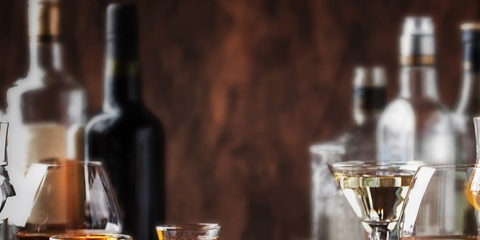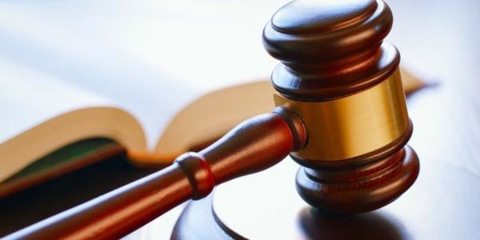As society confronts the tragic consequences of drunk driving, legislators and courts continue to struggle to define the circumstances under which restaurants, bars and social hosts may be held liable for damages caused by intoxicated patrons or guests. Connecticut has both a Dram Shop Act, applicable to commercial servers of alcohol, and a Social Host Law, which applies to property owners who permit alcohol to be consumed on their premises. Both statutes have given rise to interpretive problems, and as courts grapple with the interpretation of uncertain terms, standards for potential liability continue to evolve.
In order to recover under Connecticut’s Dram Shop Act (Conn. Gen. Stat. §30-102), a plaintiff must prove that the owner of a bar or restaurant (1) sold intoxicating liquor (2) to an “intoxicated person,” and (3) that, as a consequence of such intoxication, the person caused injury to the person or property of another. Because the term “intoxicated person” is not specifically defined, the second prong of the statutory test has been a source of litigation over the years since the establishment of the Act. In Sanders v. Officers Club of Connecticut, Inc., 196 Conn. 341 (1985), the Connecticut Supreme Court explained that “when it is apparent that a person is under the influence of liquor, when his manner is unusual or abnormal and is reflected in his walk or conversation, when his ordinary judgment or common sense are disturbed or his usual will power temporarily suspended, when these or similar symptoms result from the use of liquor and are manifest, a person may be found to be intoxicated.” Although the court did not expressly characterize the standard as “visible intoxication,” it clearly established that the plaintiff must prove that the patron exhibited some physical signs that a reasonable observer would perceive as evidence of intoxication.
The courts applying the criteria described in the Sanders case have referred to the statutory standard as one of “visible intoxication”. One of the problems for restaurant and bar owners is that it does not matter if servers or bartenders fail to notice that the person is intoxicated. As long as there is evidence that the person was visibly intoxicated to someone, that alone will satisfy the second prong of the statute. This significantly increases the owner’s exposure to liability, because the testimony of any witness who observed the patron may suffice, even if the defendant’s knowledge of the patron’s intoxication is not proven.
One issue left open by the earlier cases was the question of when the patron had to show signs of intoxication. In O’Dell vs. Kozee, 307 Conn. 231 (2012), the Supreme Court eased the burden on restaurants and bars somewhat by holding that a server cannot be held liable under the Dram Shop Act unless it serves a patron displaying visible or perceivable signs of intoxication at the time of service. This means the patron must show actual signs of being drunk, such as slurring speech or loss of balance, at the time when drinks are being served, not merely at any point during the time he or she is on the premises. The Court emphasized that “any perceptible indicator of intoxication at the time of service, including excessive alcohol consumption itself, can be sufficient to deem the purveyor on notice.” Because the statute is deemed to impose strict liability, however, it is not necessary for the plaintiff to show that the server knew or should have known of the patron’s intoxication – it is enough to show that the patron was perceivably intoxicated to someone on the premises at the time of service.
This places a heavy burden on bartenders and servers, who must not only keep track of the number of drinks consumed by patrons, but must also remain actively observant and engage customers in conversations, remaining vigilant for any visible or perceivable signs of intoxication. One could argue that a fairer standard would have simply required servers to refrain from providing alcohol to patrons in circumstances where they know or reasonably should know that the patron is intoxicated. Such a requirement of actual or constructive notice based on signs of intoxication, which would have been obvious to any reasonable person – similar to the familiar standard in premises liability cases, would afford greater ease of application and yield more predictable results. However, the Court expressly rejected this approach, characterizing the statute as imposing “strict liability,” and ruling that “the plaintiff need prove only that signs of [the patron’s] intoxication could have been observed, not that they would have been obvious to anyone coming into contact with him.”
Since plaintiffs do not need to prove actual or constructive knowledge of intoxication by bar/restaurant servers under the CT Dram Shop Statute, owners would be wise to implement policies and procedures that will minimize the chance of service to intoxicated patrons. Such policies might include training staff to identify intoxicated customers and to avoid overserving patrons, as well as prohibitions against consumption of alcohol by employees. Although these policies might not be popular amongst patrons and employees, they could help to lessen the possible exposure of liability for the owners.
While the Supreme Court was toughening the standards applicable to commercial establishments under the Dram Shop Act, the Connecticut legislature was expanding the scope of potential criminal liability under the “Social Host Law.” Section 30-89a of the Connecticut General Statues previously prohibited anyone owning or controlling a residence or other private property from “knowingly” permitting a minor to possess alcohol on the premises. In 2012, Public Act 12-199 broadened the statute to impose criminal liability on those who “recklessly or with criminal negligence permit” underage drinking on their property. Thus, it is no longer necessary to prove that the social host actually knew that minors were consuming alcohol on the premises. Moreover, the statute was also amended to impose an affirmative obligation on owners to make a “reasonable effort to halt” underage drinking if they are aware that it is taking place. The statute does not define what is considered “reasonable effort,” however, and this question – along with the new “reckless or criminal negligence” standard – will likely be the subject of litigation in the coming years. It could also result in efforts to expand tort liability of social hosts in civil cases, consistent with the newly expanded standard for criminal liability. A similar attempt to import criminal liability standards into the civil context was recently made in Massachusetts. Our firm was successful in persuading the Massachusetts Supreme Judicial Court to reject this approach in Juliano v. Simpson, 461 Mass. 527 (2012).
As legal standards continue to evolve and the scope of potential liability expands, business and property owners will confront new risks and uncertainties under the Connecticut liquor liability law. If you need experienced counsel to assist in defending against such claims, or if you need assistance and advice in your efforts to manage and minimize these risks, please feel free to contact any of our offices.



